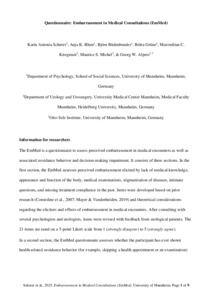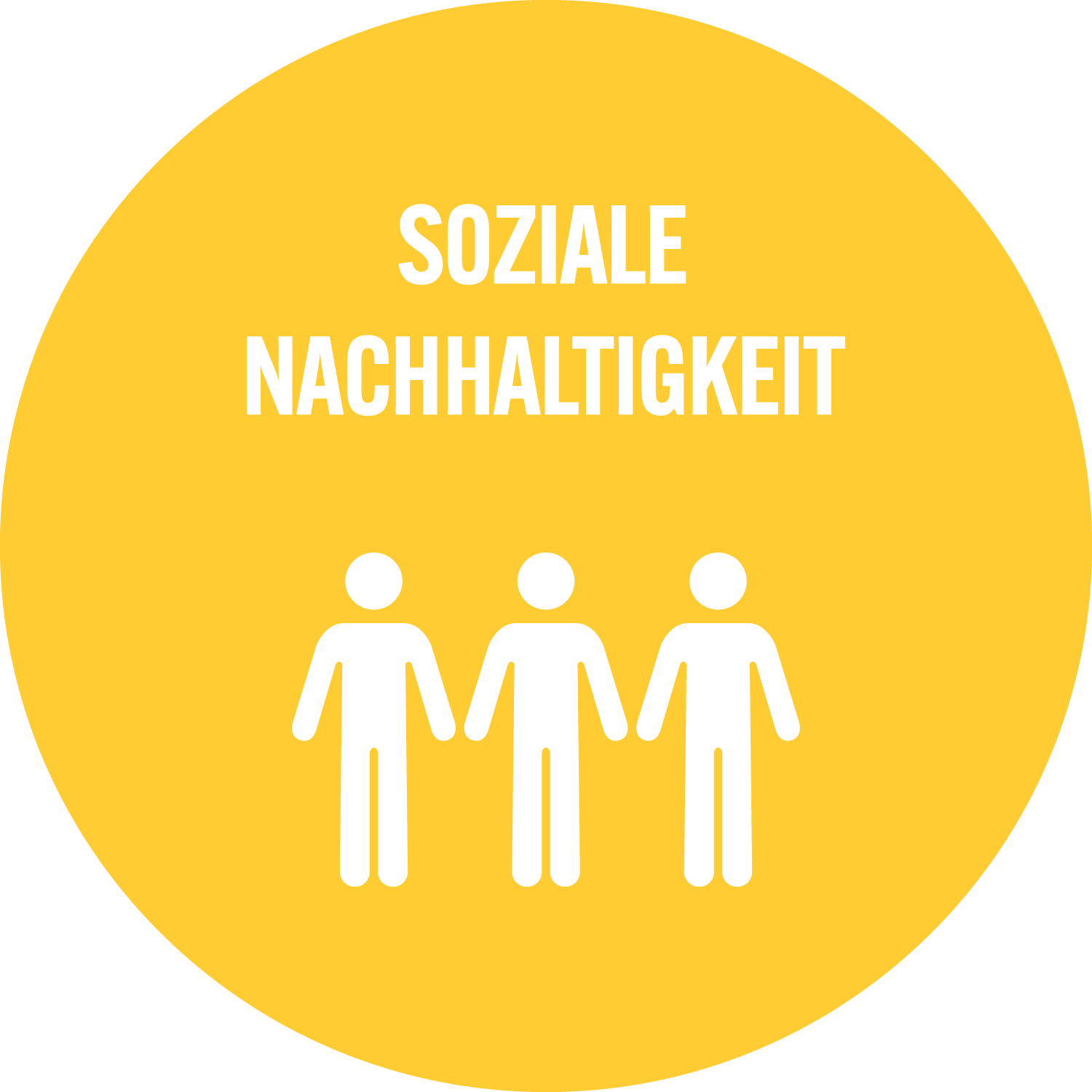|
Questionnaire: Embarrassment in Medical Consultations (EmMed)
Scherer, Karin Antonia
;
Blum, Anja K.
;
Büdenbender, Björn
;
Grüne, Britta
;
Kriegmair, Maximilian C.
;
Michel, Maurice S.
;
Alpers, Georg W.
![[img]](https://madoc.bib.uni-mannheim.de/69436/1.hassmallThumbnailVersion/Scherer%20et%20al_2025_Questionnaire_Embarrassment%20in%20Medical%20Consultations%20%28EmMed%29.pdf)  Vorschau |
|
PDF
Scherer et al_2025_Questionnaire_Embarrassment in Medical Consultations (EmMed).pdf
- Veröffentlichte Version
Download (379kB)
|
|
URN:
|
urn:nbn:de:bsz:180-madoc-694361
|
|
Dokumenttyp:
|
Bericht
|
|
Erscheinungsjahr:
|
2025
|
|
Ort der Veröffentlichung:
|
Mannheim
|
|
Verlag:
|
Universität Mannheim
|
|
Sprache der Veröffentlichung:
|
Englisch
|
|
Einrichtung:
|
Fakultät für Sozialwissenschaften > Klinische u. Biologische Psychologie u. Psychotherapie (Alpers 2010-)
|
|
Fachgebiet:
|
150 Psychologie
610 Medizin, Gesundheit
|
|
Freie Schlagwörter (Deutsch):
|
partizipative Entscheidungsfindung , PEF , Patientenbeteiligung , Uroonkologie , Scham , EmMed
|
|
Freie Schlagwörter (Englisch):
|
shared decision-making , patient-clinician interaction , patient participation , participation preference , embarrassment , urology , urooncology , EmMed
|
|
Abstract:
|
The EmMed is a questionnaire to assess perceived embarrassment in medical encounters as well as associated avoidance behavior and decision-making impairment. It consists of three sections. In the first section, the EmMed assesses perceived embarrassment elicited by lack of medical knowledge, appearance and function of the body, medical examinations, stigmatization of diseases, intimate questions, and missing treatment compliance in the past. Items were developed based on prior research (Consedine et al., 2007; Mayer & Vanderheiden, 2019) and theoretical considerations regarding the elicitors and effects of embarrassment in medical encounters. After consulting with several psychologists and urologists, items were revised with feedback from urological patients. The 21 items are rated on a 5-point Likert scale from 1 (strongly disagree) to 5 (strongly agree). Sum scores are calculated and transformed with min-max normalization to range from 0 to 100 (EmMed Score), with higher values indicating a higher level of perceived embarrassment.
In a second section, the EmMed questionnaire assesses whether the participant has ever shown health-related avoidance behavior (for example, skipping a health appointment or an examination) because of embarrassment provoked by any of the mentioned elicitors (7 items). In the third section, a single item assesses whether the participants’ decision-making was ever impaired by perceived embarrassment.
|
|
Übersetzter Titel:
|
EmMed Fragebogen: Embarrassment in Medical Consultations
(Deutsch)
|
 | Dieser Eintrag ist Teil der Universitätsbibliographie. |
 | Das Dokument wird vom Publikationsserver der Universitätsbibliothek Mannheim bereitgestellt. |
 Suche Autoren in Suche Autoren in
BASE:
Scherer, Karin Antonia
;
Blum, Anja K.
;
Büdenbender, Björn
;
Grüne, Britta
;
Kriegmair, Maximilian C.
;
Michel, Maurice S.
;
Alpers, Georg W.
Google Scholar:
Scherer, Karin Antonia
;
Blum, Anja K.
;
Büdenbender, Björn
;
Grüne, Britta
;
Kriegmair, Maximilian C.
;
Michel, Maurice S.
;
Alpers, Georg W.
ORCID:
Scherer, Karin Antonia ; Blum, Anja K. ; Büdenbender, Björn ; Grüne, Britta ; Kriegmair, Maximilian C. ; Michel, Maurice S. ; Alpers, Georg W.  ORCID: 0000-0001-9896-5158 ORCID: 0000-0001-9896-5158
Sie haben einen Fehler gefunden? Teilen Sie uns Ihren Korrekturwunsch bitte hier mit: E-Mail
Actions (login required)
 |
Eintrag anzeigen |
|
 ORCID: 0000-0001-9896-5158
ORCID: 0000-0001-9896-5158






 Suche Autoren in
Suche Autoren in